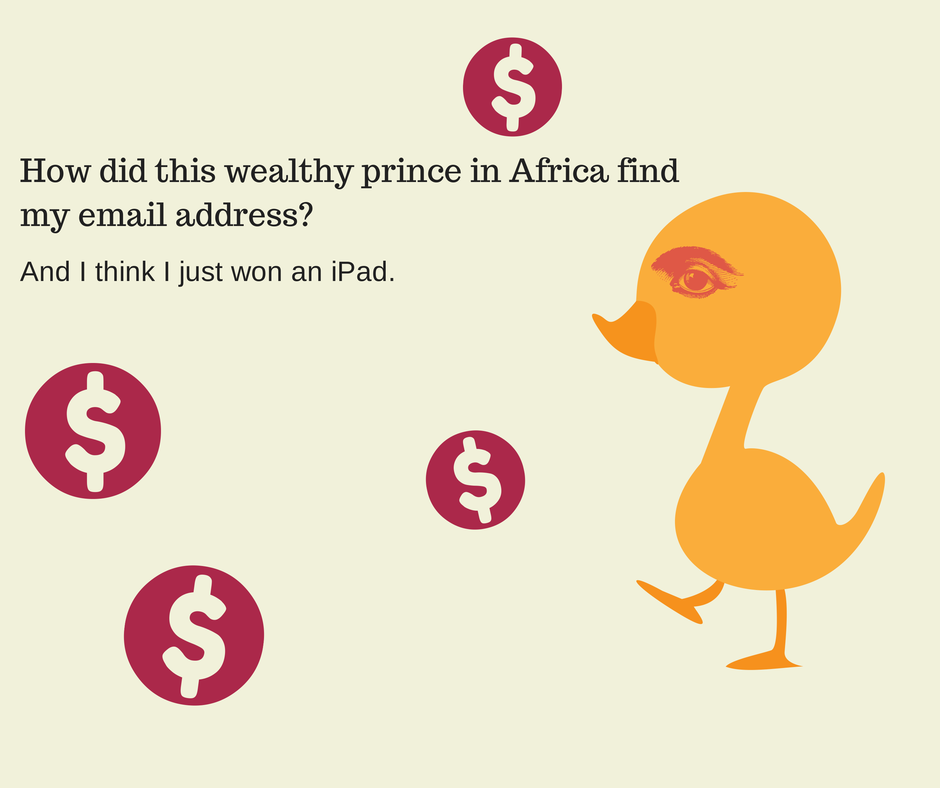Anything that reduces spam is a good thing. That includes the new aspects of the Canada Anti-Spam Law (CASL) that have just gone into effect.
No one likes unwanted spam. (As if there’s “wanted” spam!) Emails from Nigerian Princes, firms with questionable investment opportunities, life insurance companies you’ve never heard of (even when they go directly to the spam folder) – they’re annoying.
You know the spammers either want money or they want to push some kind of wacky agenda on you. (Sure it makes sense, but I really don’t care what proof you have that Martians are running the US Government.)
You might ask: Why would Happy Grasshopper – a company that writes and distributes email campaigns for our clients – be happy about a law that affects email campaigns?
Two things for you to look at:
- First, look at our name. HAPPY Grasshopper. This smile on our face is permanently attached. “Happy” isn’t just our first name, it’s our culture.
- Second, go back and look at the first sentence in the second paragraph of this blog. No one likes spam! Us included. Spammers give every business communicating via email a bad name.
Keeping Spam in the can, not the inbox
Canada has had the anti-spam law in effect for four years. The tougher new regulations started this month. Under the new regs, people who send marketing emails to customers or subscribers must meet three criteria:
- You must obtain expressed or implied consent, either written or verbal.
- You must provide identification information in your email, meaning it must come from a person rather than a no-reply address, and it must include contact information like a physical mailing address or a phone number.
- Your emails must have an unsubscribe mechanism allowing people to opt out.
There is absolutely no question about criteria two and three. None.
But what is “expressed” or “implied” consent?
Expressed consent is an “opt-in” that’s done when the lead opts in through a form. In other words, the lead consents by completing a form on a page whose purpose is to get the lead to request information.
Implied consent is a bit more ambiguous. Here, you will have sent the lead a quote or proposal, and the consent is implied. However, the recipient must opt-in within six months or the consent expires.
Of course, the law also says that consent may be verbal, and that could cause problems since, as the old saying goes: Verbal agreements are worth less than the paper they are written on.
In the coming months, there will probably be court cases where implied consent is made somewhat clearer. We’ll be tracking it, and we’ll let you know if there’s further information that impacts how you connect with your leads and clients.


